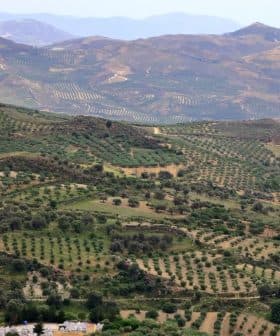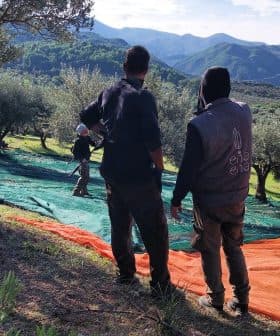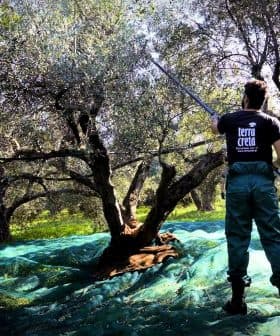Europe Approves €1B Aid to Greek Farmers, Other Businesses as Agricultural Sector Reels

 Apr. 14, 2020 06:50 UTC
Apr. 14, 2020 06:50 UTCThe European Commission approved €1 billion in repayable advances to aid Greek companies impacted by the coronavirus outbreak, with funds to be disbursed by the Public Revenue Authority. The aid program allows for subsidies up to €100,000 for agricultural companies and up to €800,000 for businesses in other sectors, as farmers struggle to sell their products due to closures in the HoReCa sector.
After the hit of the novel coronavirus on the economy of Greece that brought many business sectors to a halt, the European Commission approved an urgent aid measure of €1 billion ($1.09 billion) in repayable advances to companies in dire need.
We cannot sell our products, we are in despair, we have started to dump them and we pay the workers only to get rid of the zucchinis since no one is buying them.
Enterprises of all sectors can take advantage of the financial aid provided their activity was disrupted by the virus outbreak. The funds are to be disbursed by the Public Revenue Authority (AADE), bypassing banks and other financial institutions.
“This €1 billion Greek repayable advances scheme will help to ensure there is sufficient liquidity in the Greek economy,” said Margrethe Vestager, the executive vice president of the commission in charge of the competition policy of the Union. “It ensures that the companies which are most impacted by the coronavirus outbreak will continue their economic activity during and after the crisis.”
The aid program adheres to the Temporary Framework of the Commission, which stipulates that companies of the agricultural sector can receive a subsidy of up to €100,000 ($109,450). A maximum amount of €120,000 ($131,340) is available for enterprises of the fishery and the aquaculture sector, while businesses of all other sectors are eligible to receive up to €800,000 ($875,680) as subsidy.
Meanwhile, farmers in Greece have been complaining about their products remaining idle due to the closing of the entire HoReCa sector (hotels, restaurants and catering) of the country.
Cretan farmers said supermarkets currently absorbs 30 percent of their production of fruits and vegetables with the rest being unsold since many eateries and other food services are closed, while their counterparts in the Ilia region of the Peloponnese have already discarded part of their fresh crop of strawberries and zucchinis due to limited demand.
“We cannot sell our products, we are in despair, we have started to dump them and we pay the workers only to get rid of the zucchinis since no one is buying them,” said Stathis Gatzounas, a grower from the Myrsini village in Ilia. “Everybody is dealing with other problems except that of the primary sector. Expenses are mounting and the only thing we can do is quit.”
Amid the protests, the Ministry of Agriculture announced that a total of €150 million ($164.05 million) is exclusively allocated as direct compensation for farmers, livestock breeders and fishermen, although the funds have not yet been released.
Growers and producers have also appealed to the Supreme Court to overturn the government’s decision prohibiting them from selling products in farmers’ markets held in other regions of the country due to traffic and transport restrictions.


 Costas Vasilopoulos
Costas Vasilopoulos






